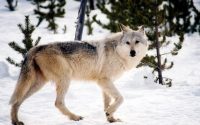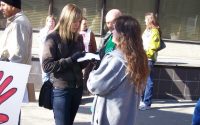Interviewing: the right way
By: Charlie Reisman
Published October 1st, 2019
Interviews are often part of news articles to bring color and depth to the story. However, many of the interviews are not done properly or thoroughly. These interviews are typically one sided, like in the article on the shooting of Lamar Smith (Dear and Scott 2015). The journalist only interviewed the sheriff, the DA, the shooter, and the chief of police. He did not interview family or friends of the deceased, to understand the whole story of why he was urging African-Americans to vote absentee (Dear and Scott 2015).
To get the best story and holistic view of an issue the interviewer has to interview multiple people from different backgrounds and who have different ideologies on the topic. The best type of interviewees are an “expert” and also a typical citizen who has been effected by the issue (Dear and Scott 2015). An example of this would be for our research paper on coral bleaching Ryan and I should interview Dr. Urcuyo and Max. Dr. Urcuyo is an expert who holds PHDs in marine biology, marine biodiversity, and hydro-thermal vent ecology. During the summer, he spends weeks researching and doing fieldwork off the coast of Nicaragua studying the coral reefs. He would be an excellent candidate to interview to get his views and first-hand experiences with the effects of coral bleaching on coral reefs. Another great person to interview would be Max, who saw first-hand coral bleaching while snorkeling in Key West, Florida this summer. He would be able to explain to us what he say and how this effects the reefs. I know I have seen first-hand the impacts coral bleaching has on reefs through my snorkeling of many Caribbean islands and the Great Barrier Reef. It should be interesting to see how his views and opinions differ from mine.

Before these interviews, both Ryan and I would need to do our research on coral bleaching. Great interviewers always go into interviews well prepared, and have a set of questions to induce the interviewee to talk freely. We will “read at least summaries or abstracts of what Dr. Urcuyo has written” (Wyss 2008). It is also very important to establish a rapport with the interviewee and to ask questions if we do not understand or know what the interviewee is discussing. One of the biggest downfalls of an interviewer is they do not understand what the person is talking about but they are to embarrassed to ask. Now that we know the pitfalls of bad interviews, we know exactly what to do to get the best answers and interviewees for our paper.
Sources:
Dear, Jennie, and Faron, Scott. The Responsible Journalist: an Introduction to News Reporting and Writing. Oxford University Press, 2015. Online.
Interviewing Principles. Columbia University. Online.
Wyss, Bob. Covering the environment: How journalists work the green beat. New York: Routledge, 2008. Print.

